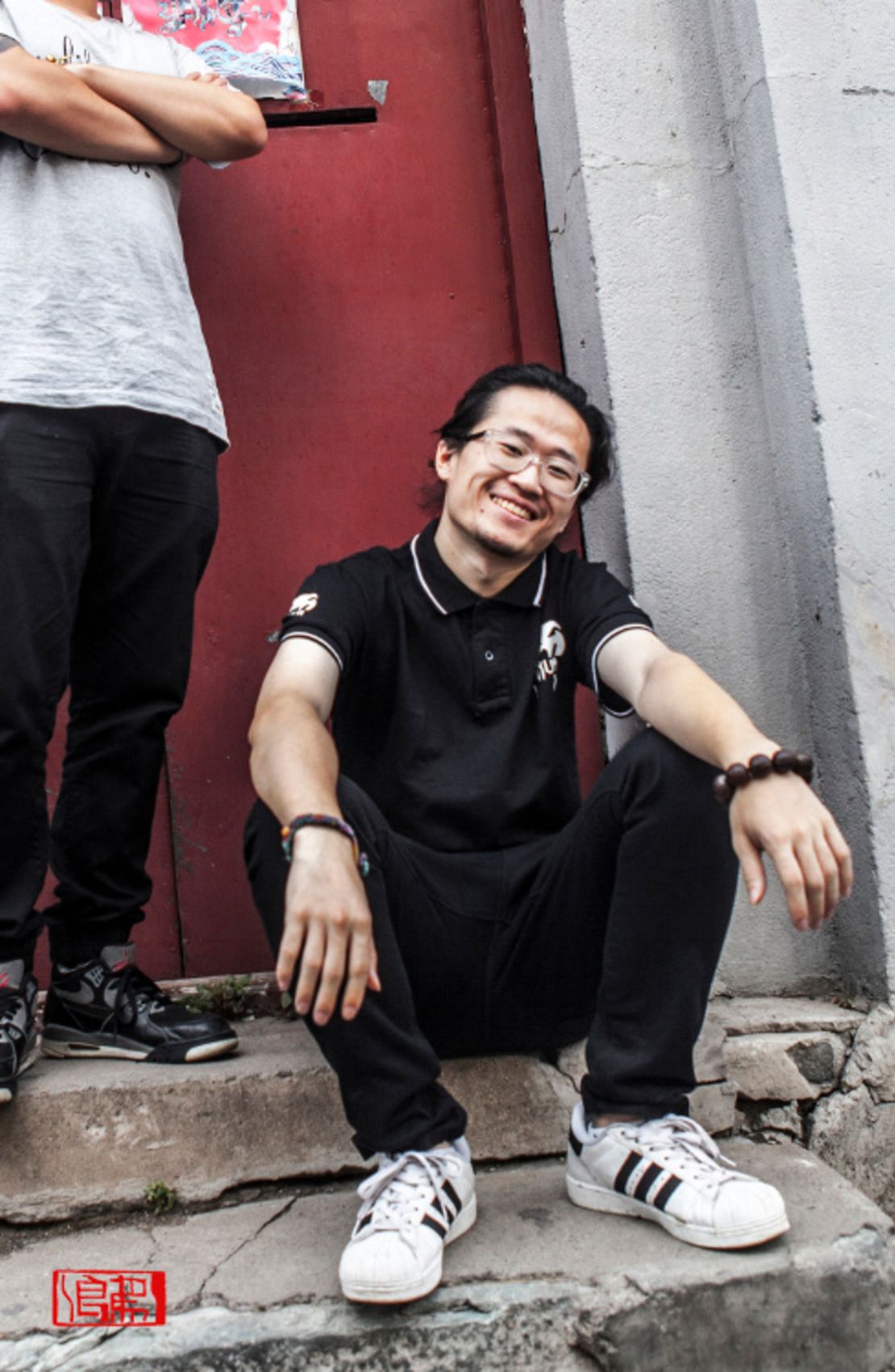Story highlights
Yu Jialang is one of China's emerging home-grown rappers
Fans say hip-hop allows a younger generation to express their individuality
Lyrics are often about social problems and city life
An underground genre, there is little money to be made
It’s a sunny afternoon at Modern Sky, one of China’s most popular outdoor music festivals, and 21-year-old rapper Yu Jialang is making his first appearance.
Hands held high, excited fans crowd the stage to cheer for Yu, who describes himself as “the baddest boy” from his neighborhood, as he busts rhymes in Chinese.
“I make good stuff but I never imitate. Let me tell you a lil’ something about the hood I come from. Listen up.”
Yu is a Beijing university student majoring in drama and film literature, but his true passion is hip-hop. He wants to become one of China’s few professional rappers.

“Everyone I know, who’s really into rap music, will try to be a rapper,” he says. “It just feels natural for us to start rapping, to have the urge to make our own music.”
Yu grew up in Dingfuzhuang, a small village that has become part of Beijing’s urban sprawl – a topic that informs his lyrics.
“Where I come from, there ain’t no kind elderly playing chess in (the) cool shade,” he rhymes in one song. “Only gamblers playing poker and bag-snatching thieves.”
Growing fan base
Yu has been playing gigs at local clubs since beginning of the year and has built up a fan base among young Beijingers.
He also volunteers for a popular hip-hop radio show, “Xi Ha Gong Yuan” (the park), where he make occasional appearances, and promotes his music through Chinese social media platforms like Weibo and Wechat.
Started by DJs Kong Lingqi ‘Def Jef’ and Wes Chen in 2006, the radio show has been actively promoting hip-hop culture in China and holds gigs to provide stages for local rappers to perform.
This year, they teamed up with the organizers of Modern Sky to set up a stage especially for hip-hop artists. China’s music festivals are usually dominated by rock bands and folk singers.
U.S. rappers like Eminem and 50 Cent have been popular since early 2000s but it was only after the Beijing Olympics in 2008 that home-grown hip-hop found a fan base.
In 2008, Beijing-based rap group In3 brought hip-hop to public attention with their “Beijing Welcomes You Back,” a song dedicated to the Olympics. With its catchy rhymes and lyrics, the song went viral online soon after it was released.
Individuality
College student Wang Dazhe, 20, has been fan of hip-hop music since high school and was Yu’s back-up act at the festival.
Wang says rap has become more popular among Chinese youth in recent years because his generation has been raised to pursue individuality. The genre allows them to express their emotions more directly than their elders.
“When I was in high school, I wanted to be different,” says Wang.
“And hip-hop music is stimulating, it made me feel excited though I didn’t understand much of the lyrics.”
He first listened to legendary U.S. rapper Tupac Shakur.
Now his latest favorite is Los Angeles-based Kendrick Lamar. But compared to U.S. rappers, Wang says he prefers Chinese artists.
“Chinese rap shares a similar form with hip-hop in the U.S., but they’re quite different. Hip-hop in the U.S. now is more about entertainment.”
“Chinese rappers tend to tell stories of their everyday life, which I’m more emotionally attached to.”
At the festival, crowd favorites were about city life – the demolition of a historic building to a traditional local cuisine.
In cities like Chengdu in China’s southwest, where residents prefer to use dialect rather than standard Mandarin, rappers use their local tongue.
Underground genre
Kong believes hip-hop is getting bigger in China, with rap communities forming in cities across the country:
“It’s very much like hip-hop in the early 90s in the States where you have a lot of people that like the music and a lot of people that are making the music.”
But unlike Chinese rock music, which enjoys tremendous mainstream popularity and huge commercial success, hip-hop still remains very much an underground genre.
As Kong points out, its popularity hasn’t really translated into record deals and profits, especially for young artists like Yu.
“Record companies (and) music festivals, they don’t know hip-hop and they’re not ready to gamble on hip-hop,” Chen says, “Because of that, the artists struggle.”
Yu, who’s in his last year of college, is willing to take a chance that the market for Chinese rap will blossom.
“While mainstream rappers, like Eminem, have a huge fan base. Underground rappers can also make a good living,” he says.
But he also knows it’s going to be an uphill battle.
“I can just focus on making music and leave the rest to time and destiny.”
Likewise, Kong and Chen are optimistic about the future of Chinese hip-hop. They believe there will be more opportunities for rappers and more people to enjoy the music, with the new stage at the Modern Sky festival just the start.
“We had the smallest stage, with the biggest crowd.”
